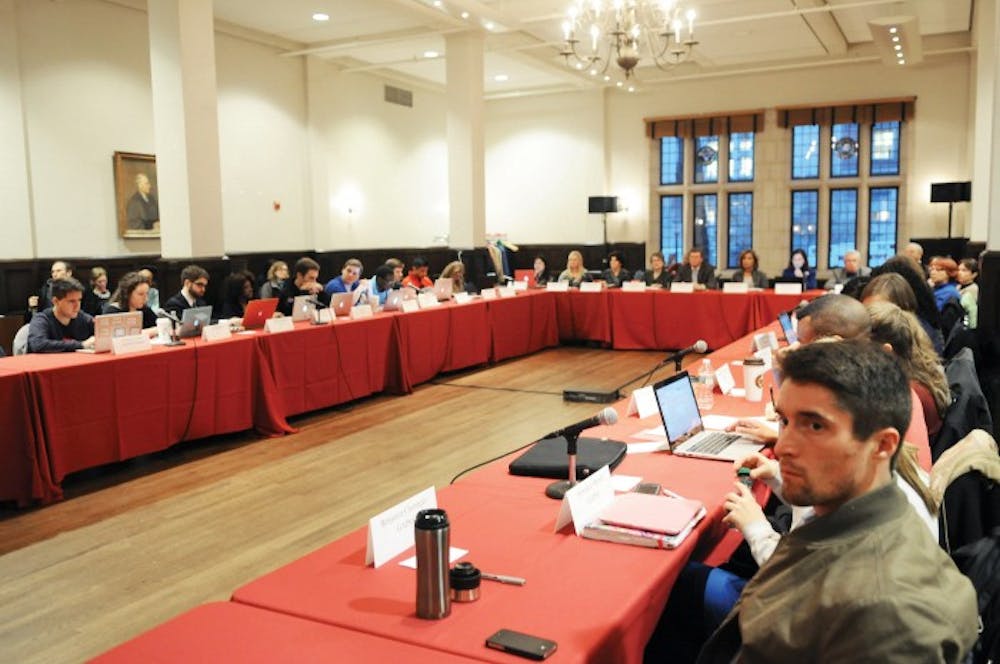The low turnout at University Council meetings has prevented it from proposing any policy resolutions since the beginning of the academic year.
The UC, which has the ability to recommend general policies to top University administrators, can only do so by forming a quorum, which requires at least 40 percent of the general body to be in attendance. But the two meetings that the group has held this semester have not had the minimum number of members, largely due to the lack of turnout by faculty and graduate student members.
The representatives on the UC include a full-time lecturer, 11 administrators, 15 graduate and professional students, and 15 undergraduates. The Executive Committee of the Faculty Senate, which is the largest body in the council, consists of 45 faculty members. Many have not shown up to meetings this semester, the sitting Chair of the Faculty Senate and Engineering professor Santosh Venkatesh said.
“It’s hard to get everyone to get to every meeting,” he said. “It depends on what is on the agenda. We haven’t had anything to require full attendance.”
The lack of attendance from the faculty and graduate students has left some members of the undergraduate constituencies frustrated.
“I do think there is a feeling that we say things during University Council and the administrators hear it, and then the issue can disappear,” said College junior Jamie Ye, the political chair for the Penn Association for Gender Equality. "We take these meetings really seriously, and we understand that faculty have busy lives, but this is one of the only opportunities that many students and student groups [have to] voice their concerns.”
“I don’t even know how many administrative or faculty seats are on the council because I never see that many there,” said Miles Owen, the president of the Graduate and Professional Student Association and a third-year Design and School of Arts and Sciences master's student. “But I do not see many graduate students there either.”
Owen said only five of the Graduate and Professional Student Assembly's 15 seats on the UC have been filled so far for this academic year. He said it has been difficult for GAPSA to find graduate students who would be interested in joining the UC.
RELATED:
The new University Council representative for the College Republicans voted for Clinton
How political should Penn's administration get? Students sound off at UCouncil meeting
This is not the first time that students have criticized the UC for failing to give students a meaningful platform to discuss policy solutions. In 2015, the Asian Pacific Student Coalition, which is the representative group for Asian Pacific-Islander students at Penn, was denied a seat on the UC, prompting widespread backlash from the community.
But in this instance, some members of the UC, such as Nomination and Election's Committee Vice Chair for Nominations and College senior Jackson Burke, say these meetings are still useful even if the Council is unable to form a quorum.
Burke said UC meetings serve as a good platform for constituencies to publicize their ongoing projects and raise issues, but problems are usually solved outside of them.
Various other members of the Council declined to comment. Vice President of the Undergraduate Assembly and College junior Jay Shah was not immediately available to comment. Chair of the Lambda Alliance and College senior Sean Collins declined to comment, as did Chair of the Latinx Coalition and College junior Caleb Diaz.
Five other members of the Council did not respond to independent requests for comment.



